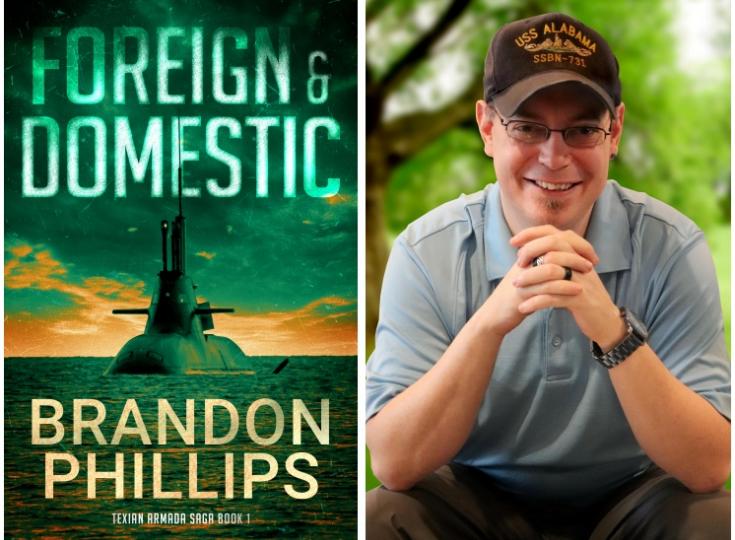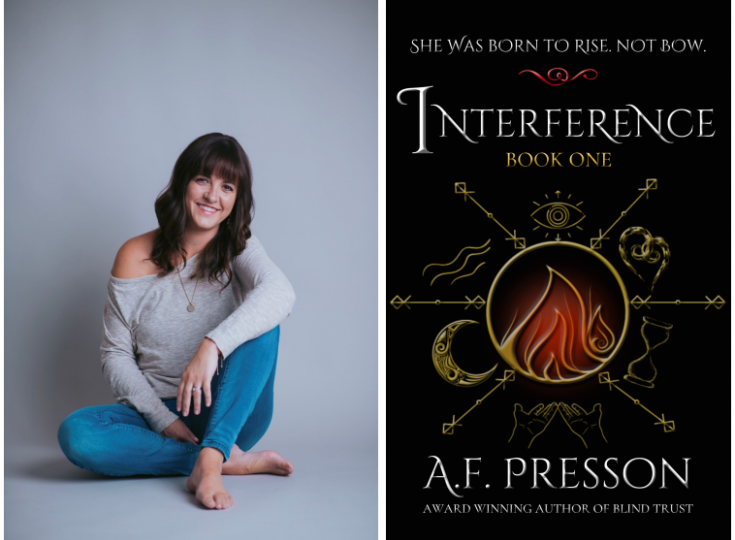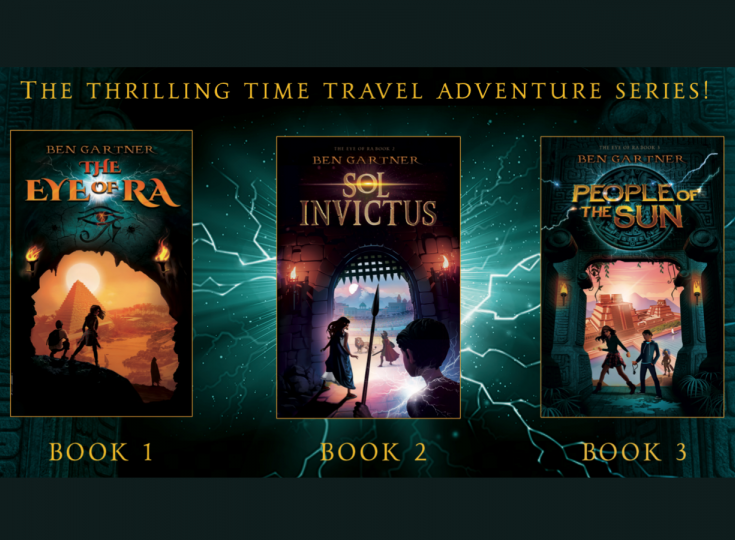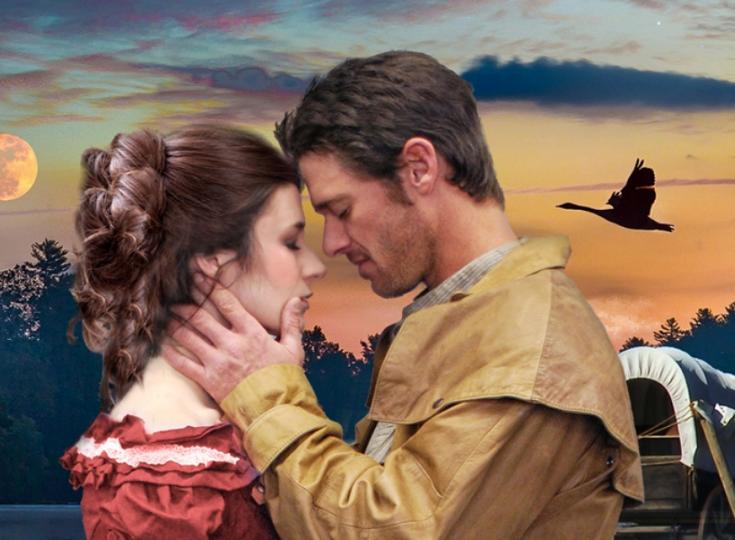Jenny Jaeckel - A Magnificent Tribute to The Emotional Complexity of Young Adulthood
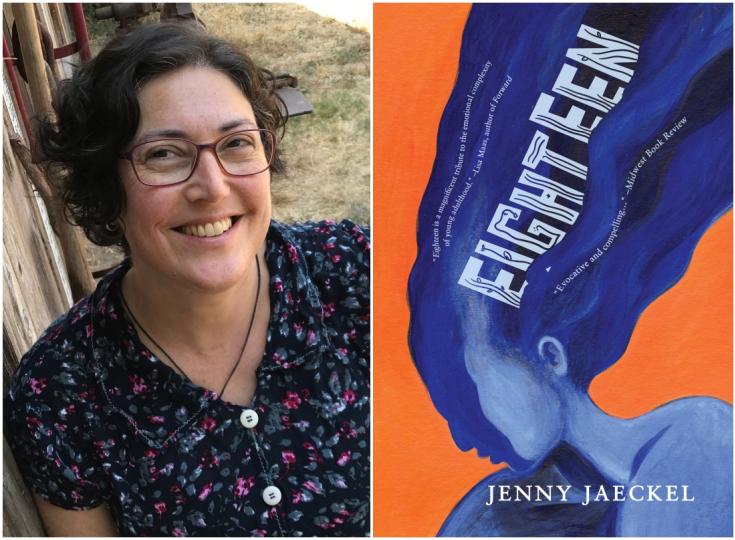
Jenny Jaeckel holds a Bachelor of Arts in Creative Writing from The Evergreen State College in Olympia, Washington and a Master of Arts in Hispanic Literatures from the University of Massachusetts at Amherst. Jaeckel grew up in Northern California. Currently, she lives in Victoria, British Columbia with her husband and child. As our Author of the Day, she tells us all about her book, Eighteen.
Please give us a short introduction to what Eighteen is about.
Eighteen is both a coming-of-age story and a love story. Leaving her hometown and chaotic childhood behind, Talia takes a solo bus journey to begin her new life at a college in the Pacific Northwest. Her inner and outer worlds rapidly expand as she encounters the people and situations that propel her journey of self (and other) discovery.
What inspired you to write a story about a young girl who steps into the unknown?
Like many young people with troubled pasts, I spent much of my youth hating myself and making decisions—especially around dating and sex—that reflected that self-loathing. I wanted to find out what my youth might have been like had I liked myself more, and I began writing an exploratory essay looking at real moments from my past and asking the question: What if I had done this instead of that? Pretty soon characters and a storyline emerged, and that became the novel. It was tons of fun to write.
Tell us more about Talia. What makes her tick?
Talia is artsy and quirky and has a unique take on the world: Cedar trees look like “old ladies in raincoats”, another night she dreams that she and her roommate are in a punk band called “Kosher Chicken Vagina” and play at a bar mitzvah. Later, when Talia’s friend Amy starts gluing toilet paper to the bathroom wall at a New Year’s Eve party, she joins right in. Talia is sensitive, harsh, funny, and tender-hearted by turns.
Besides writing, what other secret skills do you have?
I am a visual artist and have illustrated several of my own books, I work as an editor and Spanish/English translator, and like to give haircuts to friends and family and myself. I can also draw excellent pictures on an Etch-a-Sketch, which is a completely useless skill, alter clothing, knit simple scarves (using Youtube every single time), and make notebooks with recycled paper.
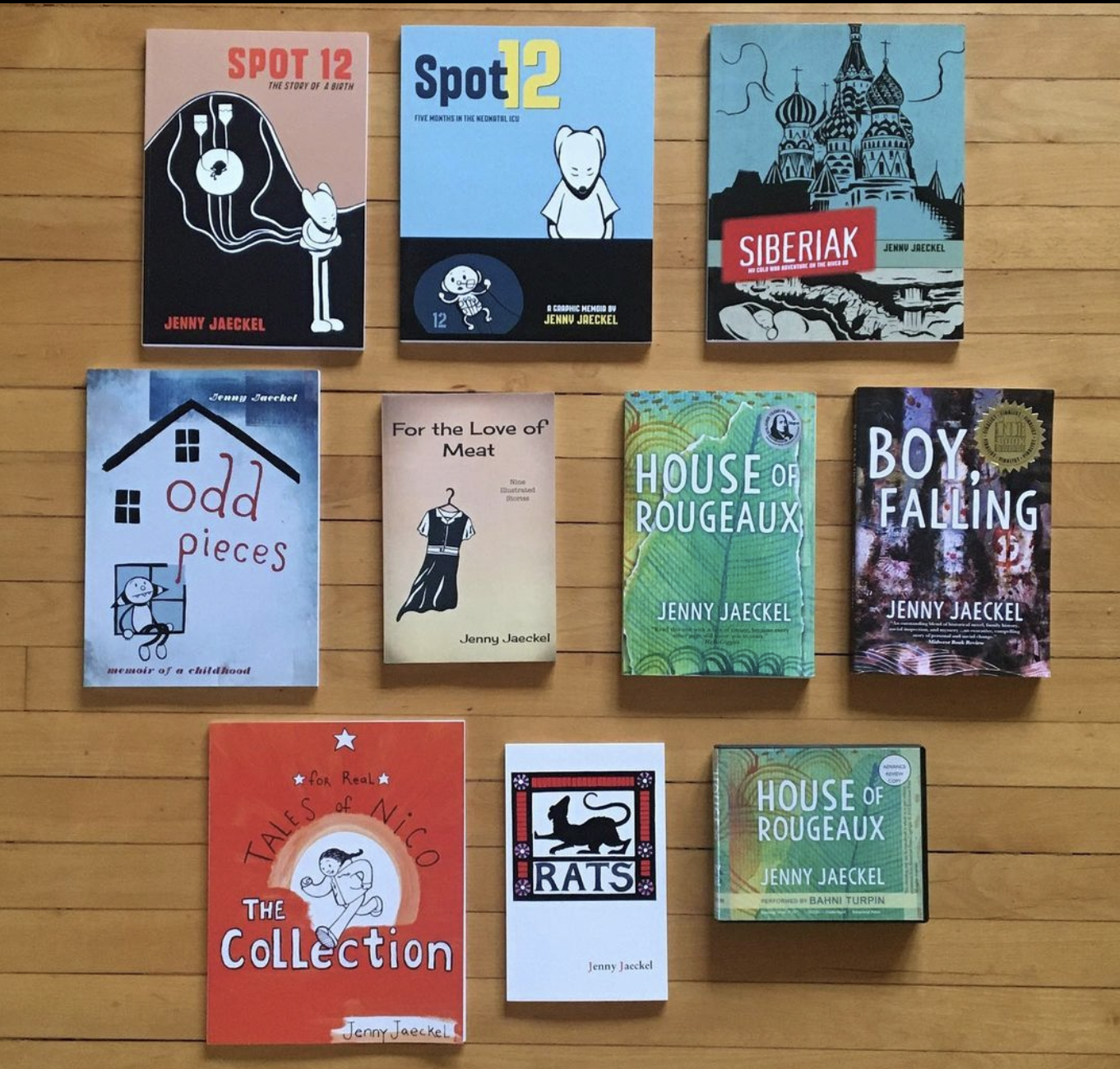
Eighteen explores major themes like love, friendship, sexuality, and self-discovery. Why did you find these important to write about?
In writing this story I found that these were the themes most important to Talia’s journey. Possibly these are the main human themes throughout life for everyone, I don’t know! I know for myself these themes have remained primary—though I must say that sexuality in my young life played a much bigger role than it does now (I just turned 51).
Interesting cover, please tell us more about how it came to be.
Thank you! Eighteen’s cover was created from an original painting I made specifically for the book. I wanted an image that captured the feeling and flavor of Talia and her story, without it being too literal a representation. Making visual art is a very intuitive process for me, and this is what emerged.
What was your greatest challenge when writing this story?
Writing any book is full of challenges. One specific challenge for me was in writing the sex scenes. I didn’t want them to come across as corny (readers will be the judge!) and had to ponder what terms to use for body parts, etc. Since Talia is brand new to sex, I wanted to convey that experience in an authentic way, and also in such a way that she was an empowered sexual being with agency, enjoyment, and healthy exploration.
Readers say they found themselves completely immersed in the story. How did you make your characters so relatable?
It’s always my dream as a writer that readers connect with the characters and feel immersed in the story. The raw materials I used to create these characters were my own life experience--of myself and a mix of friends--put together with the shaping and gluing of imagination. When I write I’m always trying to strike a certain note or hit that elusive target of “getting it right”. I have an amazing editor who I call my editorial kung fu master. Her feedback was essential to the rewriting and shaping of all the elements in the story and all the characters.
Your story is reminiscent of J.D. Salinger's The Catcher in the Rye and Colette's Claudine - which are some of your favorite coming-of-age books?
The Catcher in the Rye, Claudine at School, and Claudine in Paris, are definitely among my favorites. I would also include The Price of Salt (also titled Carol) by Patricia Highsmith, The Time of the Doves by Mercè Rodoreda, The House of Mango Street by Sandra Cisneros, and I Know Why the Caged Bird Sings by Maya Angelou.
When starting on a new book, what is the first thing you do?
When starting work on a new book I do a lot of very haphazard free writing. I try to throw any and all ideas down onto the page however messy and out of order they might be. If I’m writing historical fiction I begin by doing a ton of research about the time and place—I like to call this the “macro research”—which is followed by an ongoing process of “micro research” where I search for pertinent details I need to know in terms of clothing, food, household objects, and many other et ceteras. I also start spending a lot of mental time with my characters, trying to feel out who they are and why they do what they do.
Do you have any interesting writing habits? What is an average writing day like for you?
I tend to follow a sprint-collapse pattern. When I’m deep into writing I’m fully immersed and often write round the clock whenever I have time or can’t sleep. I keep a notebook with me when I’m in the kitchen cooking or walking somewhere in case I need to jot something down. However, I don’t have a lot of stamina, so I may be immersed for a month or two and then collapse and do no writing for several weeks. Then do another sprint.
What are you working on right now?
About a year ago I found a crusty old book in a free box—an anthology of an ancient Christian magazine called “The Sunday at Home”, which was full of illustrations of people in dramatic poses, in Victorian or biblical dress. I have been creating very ridiculous comics with some of these illustrations by adding silly captions and word balloons and posting them on social media.
